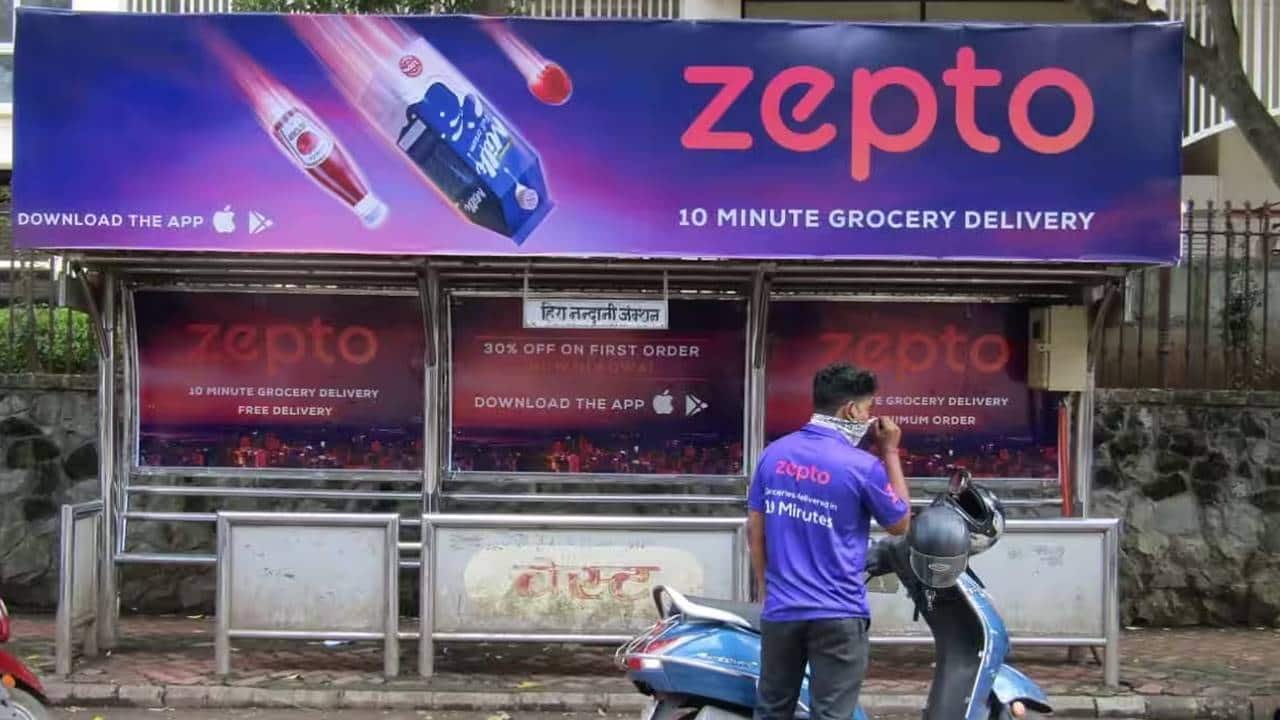One quick thing: Why Mamaearth is struggling
In today’s newsletter:
- Zepto's burn tops Rs 250 crore per month
- Cred-owned Spenny applies for stock broking licence
- Why the next big thing in AI isn't coming so fast
Event alert: CNBC TV18 & Moneycontrol will be hosting the most definitive summit on Artificial Intelligence with top global and Indian voices on November 22nd in Bengaluru. Click here to register and get access to CNBC-TV18 & Moneycontrol Global AI Conclave'.
Was this newsletter forwarded to you? You can sign up for Tech3 here
 Top 3 stories
Top 3 stories
Zepto's burn tops Rs 250 crore per month

If you’re seeing more Zepto dark stores around you or are flooded with Zepto ads on YouTube, it’s because the company is now going all out.
Tell me more
Zepto’s cash burn has now crossed Rs 250 crore, or $30 million, a month, four people familiar with the matter told us.
- The cash burn is up 6X from Rs 35-40 crore a month in May
- The company is spending aggressively on dark store expansion, digital marketing, keywords on the internet, and more
Zepto is also spending heavily on poaching talent from competitors.
“It has become crazy and they are now giving hikes of up to 50-60% to poach talent”, one of the sources said, highlighting the intensive competition.
Funding blitzkrieg
Even as Zepto is burning Rs 250 crore a month, the company has closed a Rs 2,500 crore round.
- That is an increase from around Rs 1,250 crore that was in the works earlier
- In the current round, Motilal Oswal’s Raamdeo Agrawal, Manipal’s Ranjan Pai, the family offices of Mankind Pharma, Cello and Bisleri, among others, have participated
After the latest round, Zepto’s cash balance has zoomed to $1.4 billion – all of which came in the last 4-5 months.
Dig deeper
Cred-owned Spenny applies for stock broking licence

Kunal Shah-led fintech unicorn has rolled the dice again, this time playing bulls and bears!
Driving the news
Cred has applied for a stock broking licence via its micro-savings and investment subsidiary, Spenny, sources told us.
- The move signals fintech's intent to expand its offerings into the lucrative yet challenging broking market, currently ruled by heavyweights like Zerodha and Groww
Cred’s interest in broking stems from the significant revenue surge seen by majority apps in the recent years.
The larger play
Cred has been strategically building its financial portfolio beyond credit cards bill payments, its foundational offering.
- The recent acquisition of Kuvera gave Cred a foothold in wealth management, enabling offerings like mutual funds, fixed deposits, SIP, digital loans
- It already has UPI payments, vehicle insurance (introduced last year), and lending which remains biggest revenue driver
Not a core offering, but broking comes as a lucrative add-on and a natural extension to Cred’s aimed full stack financial play.
Cracking the code
Stock broking could bring transaction fees, account management charges, and advisory revenues for Cred.
- However, dominant players like Zerodha, Groww, Angel One, 5 Paise, who offer broking as core service, have set a high benchmark and amassed a major chunk of users
- The timing also coincides with SEBI’s strict norms on speculative F&O trading—the revenue driver for discount brokerages apps
Will Cred be able to translate its 1.3 crore users into a solid base for the upcoming service?
Find out more
Why the next big thing in AI isn't coming so fast

For the past few years, the tech world has been gripped by the high-stakes race to develop the most advanced artificial intelligence (AI).
AI giants are facing hurdles, leading many to question whether bigger and more powerful models are the answer.
Is bigger really better?
The AI industry has long followed the so-called "scaling laws," which suggest that bigger models—those with more parameters, trained on larger datasets, and supported by powerful computing—would lead to better performance. But it turns out, there are diminishing returns.
- OpenAI co-founder Ilya Sutskever, who quit recently the company, believes the focus has shifted from "scaling" to "wonder and discovery"
The leap from GPT-3 to GPT-4 was extraordinary, but subsequent releases, like OpenAI’s Orion and Anthropic’s Claude 3.5, have not delivered the same level of improvements.
Tarun Bhojwani, Head of People + AI argues that the real challenge is not scaling these models.
"There's no company which wins a billion dollars for having the biggest models. Companies win when their models are being used in real-life applications and they're getting paid," Bhojwani said.
Data and cost
Another hurdle: the data needed to train these models.
- Dependent on scraping public data, companies are struggling to find high-quality, specialised datasets
- Synthetic data, while useful, lacks the richness of human-generated information.
Meanwhile, developing cutting-edge models can cost hundreds of millions of dollars. As models grow larger, so do the costs.
Shifting focus
With traditional scaling hitting a wall, companies are exploring new approaches.
- OpenAI's o1 model spends extra time computing answers, focussing on "test-time compute" rather than just pre-training larger models
- The company is also looking beyond building bigger models and exploring new use cases like AI "agents"
Go deeper







